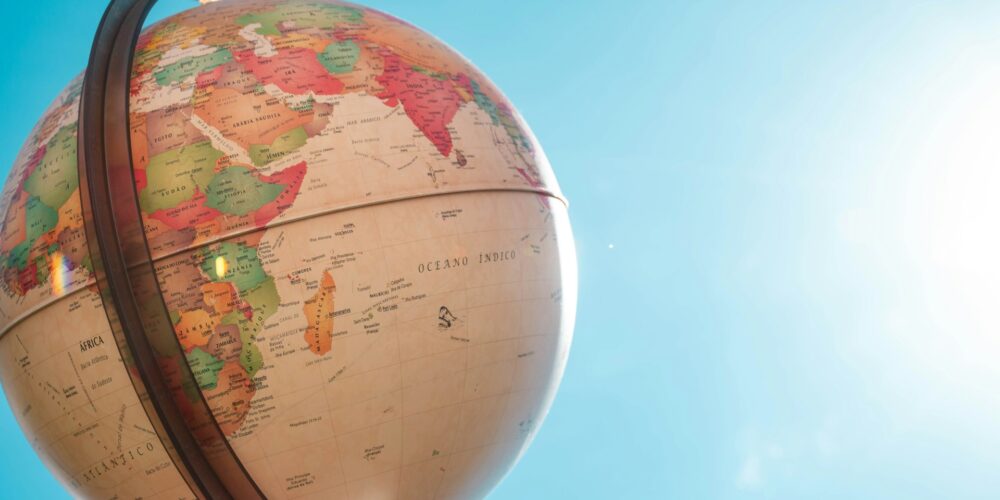What is a nation?

What is a nation? What makes it what it is?
Is a nation its borders, the lines on a map that define its boundaries? Is that what we think of when we think of a country? Is a nation its physical features, the mountains and lakes and rivers that are its hallmarks? Or is a nation defined by its economic might? The robustness of its exchange rate, the upward mobility of its GDP?
I heard a senior official in Singapore say her country has no natural resources. It has no minerals, no soils, no energy sources. It can’t even grow its own food. Yet it is a global haven of wealth and stability. It has one resource, and one resource only: its people. That one vital resource leads to all its prowess. Singapore’s success story is not written in the language of natural endowments but in the script of human endeavour, education, and strategic vision.
It is the ingenuity of the people that leads a nation to international heights. It is people who do the thinking; people who put in the collective sweat; people who start and sustain businesses; people who have vision and determination; people who solve problems. And guess what Singapore and many other nations also know? The key resource is not just a few people, but all of them. Sustained success only happens through the many, not a privileged few.
How do you behave when your most important asset is your people—all your people? The answer is obvious: you develop and protect and grow that asset. If truly people are the engine that drives you, then you make sure you educate all your people, you make sure you keep them secure, you make sure you keep them in good health, and you make sure you give them every possible life-chance and economic opportunity.
What would you not do? You would not neglect their education and leave them ignorant and superstitious. You would not expose them to disease and bad living conditions. You would not leave them to the mercy of criminal elements. You would not run an economy that did not maximise their chances to find meaningful work and livelihoods. Why would you not do that? Because to neglect your people would be the greatest fallacy, one that would lead to national ruin.
A nation that prioritised its people would have well-paid teachers and doctors and nurses, and well-equipped schools, hospitals, and clinics. It would have well-trained security forces that understood that their purpose and calling was to protect all the people. It would have an inviolable system of law, where all have recourse to justice, and all must obey its laws. It would nurture entrepreneurship and provide its strivers with access to both capital and markets.
Many years ago E. F. Schumacher asked us to reimagine economics as though people mattered—not entities or balance sheets or statistics, but actual people. People with feelings. People with hopes. People with rights. He warned that if we elevate goods above people, we will only limit our humanity. I agreed wholeheartedly, and wondered why we would structure society only to benefit the privileged few, where the ordinary people are mere pawns in the games of the rulers.
A society that does not prioritise its people regards their security and safety as optional. It does not worry about the deaths of the many. If people are being killed by thugs, or bad roads, or fake medicines, or extreme poverty, or drought and floods, or even by the state itself—well, tough. There are many more ordinary yokels where they came from. What matters is that the ruling classes must be protected from those dangers.
Schumacher pointed out very eloquently that a nation that does not care deeply about its people is not sustainable. Slowly but surely, the social fabric erodes; people get engaged in a me-first struggle for survival; fights for land and resources erupt everywhere; inequality goes to extreme levels; the rich hide behind electric fences; and the environment is destroyed for narrow personal gain.
Our future sits not with bigwigs or kingpins or tribal lords, but with artists and entrepreneurs, teachers and nurses, innovators and risk-takers, fruit-sellers and content creators. They hold the keys. Most importantly, a nation’s future sits in the hands of its children. If they come of age equipped to be productive and useful, then widespread wealth and welfare can be created and sustained. But if we leave our young adults devoid of opportunity or hope, no one in the land we call our nation can have a future worth having. The young must feel an emotional connection to their home; they must believe in their nation; they must resonate with its values; they must have hope for their futures.
Our true achievement as human society is not our skyscrapers or expressways, not our mansions or our opulent luxuries. An enlightened civilisation reserves its highest priority for the well-being, education, and empowerment of all its people, and particularly its youngest members. There is no more profound investment to be made, no greater economic priority, no worthier national goal.
(Sunday Nation, 30 June 2024)

Buy Sunny Bindra's new book
The X in CX
here »
Popular Posts
- NY’s wake-up call to the old guardNovember 9, 2025
- Save your strength for repairsNovember 2, 2025
- How to listen, really listenNovember 16, 2025
- Empathy is the missing code in CXOctober 26, 2025
- Is AI hiring your company into oblivion?November 23, 2025















